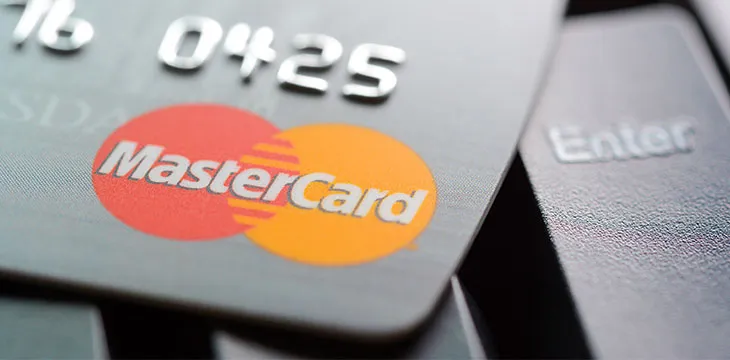|
Getting your Trinity Audio player ready...
|
Payments giant Mastercard has secured a handful of new blockchain patents this week, including protection for a system designed to process anonymous transactions on the blockchain.
Causing something of a stir in the blockchain community, the anonymous transactions patent was awarded on Thursday by the U.S. Patent and Trademark Office (USPTO), concluding the application that was first filed in late 2016.
Mastercard suggested the transparency in regular blockchain transactions was holding back its potential for payments, both for retail and business consumers. This is brought into sharp relief in commercially sensitive industries, for example, where companies may be less than willing to publicise transaction volumes and sizes to direct competitors in real-time.
According to the patent, these problems can be solved by anonymity:
“Thus, there is a need for a technical solution whereby an entity may participate in a transaction where transaction details may be posted publicly to ensure accountability and trust in the data, while still providing anonymity and inability of others to track individual transactions or volume information by transaction party identifying information of both parties of a transaction to satisfy the confidentiality needs of each entity involved in the transaction.”
This week’s patents are the latest milestone in a number of achievements for Mastercard in the blockchain space, despite the company’s outspoken criticism of the BTC coin and other cryptocurrencies.
However, there are a number of coins already in existence built around privacy and anonymity. Monero and Zcash are some of the most prominent examples, but the SegWit BTC coin also intends to introduce more privacy features as its Lightning Network becomes more widely adopted.
The Mastercard plan is to deliver this functionality with public cryptocurrency, and is likely to want to create systems that allow transactions to be traced if required by law enforcement.
As distinct from the peer-to-peer nature of privacy coins, Mastercard’s patent describes a system that is still centrally verified, with a database holding unique ‘identity profiles’ for parties to eventual transactions.
With Mastercard now set to become more active on the blockchain privacy front, it remains to be seen whether privacy coins can overcome this new hurdle towards mainstream adoption.

 07-27-2025
07-27-2025 





